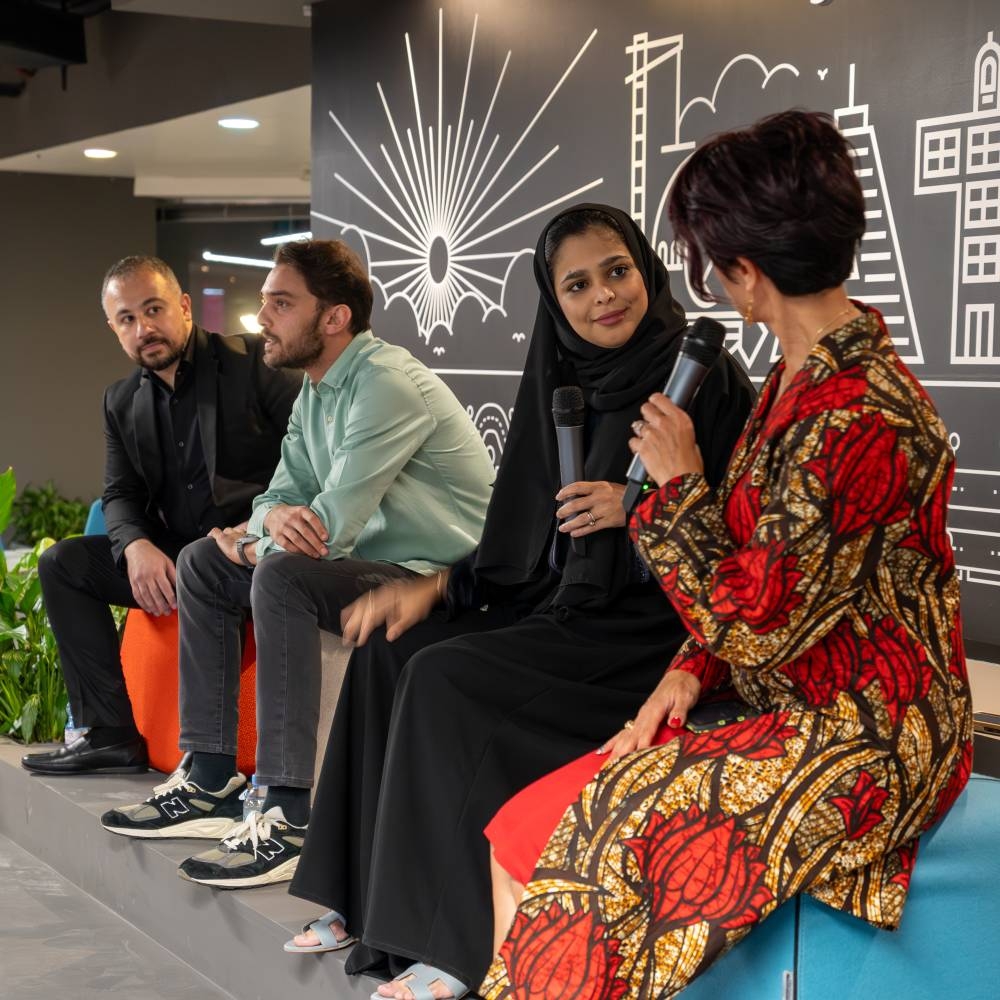Zumra Group recently hosted a panel discussion titled ‘Zeyara with Zumra: Advancing Strongly in Qatar Post-World Cup; Mastering the Art of Economic Resilience’ at the Workinton Qatar.
The discussion featured industry experts Saleh al-Raisi, co-founder and CEO of Flare Business Centre; Nayef al-Ibrahim, co-founder and CEO of Ibtechar; Rasha al-Sulaiti, general manager of Innovation Consultancy; Reem al-Suwaidi, founder and owner of Saikl Bike; Ali Khadjavi, CEO of Feedback; and Karim Mergan, general manager of Workinton Qatar.
Zumra Group founder Nasser bin Ahmad al-Naama said, “This initiative aligns with the deep history and legacy of my family, who have been pivotal in shaping Qatar’s economic landscape.”
He added: “The entrepreneurial acumen, resilience, and foresight of my ancestors are instilled in me. Their significant contributions to Qatar’s economic fabric have inspired and informed my efforts to carry forward and amplify their legacy.
“Entrepreneurship is often misunderstood and undervalued. The event’s panel is a testament to the relentless spirit and grit required to navigate and overcome these obstacles.”
During the discussion, al-Ibrahim, emphasised that Qatar has proven its resilience during the June 2017 blockade and the Covid-19 pandemic using the 2022 FIFA World Cup as a platform.
“Qatar has achieved high security, stability, and development, making it an attractive destination for talent, investment, and global attention,” he emphasised.
According to al-Ibrahim, big consultancies “are investing heavily in Qatar, but local businesses are struggling.” He suggests two areas for improvement: regulation at different levels, particularly in real estate, to make Qatar more affordable; and regulations to attract and retain talent.
“I think running a business in Qatar shouldn’t be a social status. It should be considered as a professional business. I think most of local businesses are being managed for social status and not as a professional business,” he lamented.
Al-Ibrahim noted that Qatar has the potential to become a state of “new technology piloting.” The country can test new ideas and learn tasks locally before expanding globally, he said, adding that Qatar has multiple opportunities to become a medical hub and should build on its current achievements.
He stressed that the economic slowdown after major events, such as 2022 FIFA World Cup “is normal.” To maximise value, Qatar needs a bigger strategic plan with different events across the year, he also noted.
Al-Ibrahim added that while free zones in Qatar can foster economic growth by attracting international companies, the country “started late compared to Jebel Ali in Dubai.” He also pointed out the challenge of competing with Saudi Arabia, which is luring global companies to relocate their regional headquarters. Al-Ibrahim suggested that “Qatar should find its niche and convince companies to come in.”
For her part, al-Sulaiti noted that the 2022 FIFA World Cup has brought about changes that cannot be undone. “We need to learn from these changes and adapt to the new reality,” she stressed.
“A healthy economy is indicated by several factors, including promotion of culture and heritage, tourism, public-private partnership, international trade, infrastructure utilisation, and investment opportunities. Although these factors could have been implemented in Qatar, they were not.
On the other hand, al-Raisi discussed the importance of a support cycle for startups in Qatar. The first part of this cycle is a healthy birthrate of startups, which has been accelerating since the World Cup, he said.
“The success of this support system depends on how well it enables companies to start, sustain, and expand. If this cycle works perfectly, input in the support system and regulation should result in the output of successful ventures,” he said.
Al-Raisi also discussed the regulations that support retaining in-country talent in Qatar. These regulations are still yet to be activated, he noted adding that communities like Flare can help sustain the community after a World Cup.
Meanwhile, al-Suwaidi emphasised the importance of having an exit strategy before starting a business. “Many entrepreneurs started a business just for the FIFA World Cup without an exit strategy, which is a big risk. Therefore, having an exit strategy is crucial before starting a business,” she said.
She also said the government sector has provided a lot of funding for entrepreneurs, adding that there are many incubation centres, as well as people helping startups in Qatar.

Rasha al-Sulaiti, general manager of Innovation Consultancy is driving a point while Saleh al-Raisi, co-founder and CEO of Flare Business Centre, and Nayef al-Ibrahim, co-founder and CEO of Ibtechar, look on.

From left: Ali Khadjavi, CEO of Feedback; Karim Mergan, general manager of Workinton Qatar; Reem al-Suwaidi, founder and owner of Saikl Bike; and fitness and health coach, Xiomara Henriquez, during the panel discussion.

